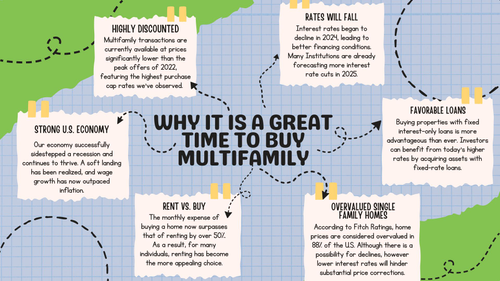Interest rates hold a pivotal role in the investment world, influencing everything from real estate to the stock market. But how do these fluctuating numbers truly affect your investment decisions? As accredited investors, understanding the interplay between interest rates and your portfolio is crucial. This exploration into the mechanics of interest rate impacts will serve as a guide, shedding light on how these changes can redefine the value of your investments. With insights tailored to your needs, we'll navigate the complex relationships that shape today’s economic environment.
Interest rates influence investment strategies and risk management. Are you prepared to adapt your approach as interest rates shift? This article is designed to empower you with the knowledge to navigate these changes confidently. From real estate to bonds, stocks, and alternative investments, we'll uncover strategic adaptations that can help safeguard your portfolio. By staying informed and engaged, you'll be better positioned to seize opportunities and mitigate risks, ensuring your investments remain robust in the face of economic changes.
The Core Relationship: Interest Rates and Real Estate Investments
Interest rates are a crucial factor in the valuation of income-producing properties. When interest rates rise, borrowing costs increase, which can reduce the appeal of real estate investments. This is particularly true for income-generating properties like rental buildings, where financing costs directly impact net income. As interest rates climb, property owners face higher mortgage payments, potentially reducing net yields from these investments. This can lead to a depreciation in property value as investors seek higher returns elsewhere. Changes in interest rates often lead to shifts in property investment strategies, as noted in Investopedia.
In commercial real estate, the effects of rising interest rates are even more pronounced. Commercial real estate investments often rely heavily on financing, making them sensitive to interest rate fluctuations. As the cost of capital rises, refinancing becomes a significant challenge, especially for properties with nearing loan maturity. This economic pressure can lead to increased risk of distress within the sector. According to EY insights, the commercial real estate market faces heightened refinancing challenges in a rising interest rate environment, which can strain cash flows and impact long-term viability. This necessitates a strategic approach to mitigate risks and manage debt obligations effectively.
Key Impacts on Real Estate:
- Higher mortgage payments reduce net yields.
- Increased refinancing challenges in commercial real estate.
- Potential depreciation in property values.
Understanding Bond Market Responses to Interest Rate Shifts
The bond market exhibits a well-known inverse relationship with interest rates. When interest rates rise, bond prices typically fall, and vice versa. This inverse relationship is a fundamental principle in bond investing, as described by Vanguard's insights. The reason is simple: when new bonds are issued at higher interest rates, existing bonds with lower rates become less attractive, causing their prices to decrease. This dynamic is critical for investors to understand, as it affects both the valuation of existing bond holdings and the strategy for future investments.
From a portfolio perspective, changes in interest rates can significantly influence bond returns and risk management. Investors often adjust the duration of their bond portfolios based on interest rate expectations. A long-duration strategy might be employed in a declining interest rate environment to capitalize on price appreciation, while a short-duration approach can mitigate losses when rates are expected to rise. Understanding these strategies allows investors to better position their portfolios to manage interest rate risk effectively, ensuring stable returns and minimizing volatility.
Bond Market Strategies:
- Adjust portfolio duration based on interest rate expectations.
- Use long-duration strategies in declining rate environments.
- Employ short-duration approaches when rates are rising.
Equity Markets: Discounting Future Cash Flows
Interest rates play a pivotal role in equity market valuations by influencing the discount rate used in discounted cash flow (DCF) analysis. As interest rates rise, the discount rate increases, which reduces the present value of future cash flows and, consequently, stock valuations. BlackRock's insights highlight the theoretical implications of this relationship, suggesting that higher rates could lead to lower stock prices. However, the equity market's response is not always linear, as other factors, such as earnings growth, can counterbalance the impact of rising rates.
Investor sentiment and market stability are also affected by interest rate fluctuations. Expectations of rising rates can lead to market volatility as investors reassess their positions and reallocate portfolios. This sentiment-driven movement can cause significant swings in stock prices, underscoring the importance of staying informed and adaptable. By understanding the interplay between interest rates and market sentiment, investors can better anticipate market movements and make more informed decisions.
Strategic Adaptations for Accredited Investors
In the face of changing interest rates, accredited investors must adopt strategic adaptations to safeguard their portfolios. Diversification remains a key strategy, spreading investments across various asset classes to mitigate risk. By balancing exposure between equities, bonds, and real estate, investors can better weather the fluctuations in any single market. Additionally, incorporating risk management tools, such as hedging strategies, can further protect against adverse interest rate movements.
Alternative investments often present opportunities for resilience against interest rate volatility. Assets such as private equity, hedge funds, and real assets can offer returns that are less correlated with traditional markets. These investments can provide a buffer during periods of rate-induced market stress, helping to stabilize overall portfolio performance. By exploring these opportunities, accredited investors can enhance their portfolios' robustness, ensuring continued growth and stability even in uncertain economic environments.
Wrapping Up: Navigating Interest Rates with Confidence
Interest rates significantly influence investment strategies, affecting everything from real estate valuations to bond market dynamics and equity pricing. We've examined how these shifts impact various asset classes, highlighting the need for accredited investors to remain vigilant and adaptive. By understanding the interplay between interest rates and investments, investors can safeguard their portfolios against economic changes, ensuring long-term stability and growth.
Our commitment at [Your Company Name] is to guide you through these complexities with expertise and integrity. By diversifying your portfolio and considering alternative investments, you'll be better prepared to handle interest rate fluctuations. The financial world changes constantly, and staying informed is crucial. As innovative thinkers in alternative investing, we believe in empowering you with knowledge. After all, thriving means confidently embracing change. How will you adapt your strategy to navigate tomorrow's economic landscape?


